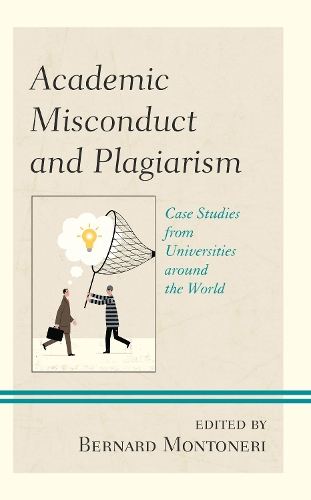
Academic Misconduct and Plagiarism: Case Studies from Universities around the World
(Hardback)
Publishing Details
Academic Misconduct and Plagiarism: Case Studies from Universities around the World
By (Author) Paola Cavaliere
Edited by Bernard Montoneri
Contributions by Denise De Souza
Contributions by Anthony L. Fenton
Contributions by Beena Giridharan
Contributions by Cynthia Gralla
Contributions by Natalia Inshakova
Contributions by Brenda Lee
Contributions by Andrew Leichsenring
Contributions by Jillian Marchant
Bloomsbury Publishing PLC
Lexington Books
15th November 2020
United States
Classifications
Professional and Scholarly
Non Fiction
378.1958
Physical Properties
Hardback
318
Width 152mm, Height 229mm
Description
This book discusses the issue of academic misconduct and publication ethics in general and plagiarism in particular, with a focus on case studies in various universities around the world (notably in Japan, Singapore, Australia, USA, and Canada). We are especially interested in students and teachers perception of academic misconduct and their definition and understanding of plagiarism. Most chapters discuss undergraduates understanding of academic dishonesty and students experiences using plagiarism softwares. The book also analyzes teachers perception of cheating and how they respond to it. Writing is perceived by all of the teachers to be the most important form of assessment that required preventative measures in order to reduce the occurrence of academic dishonesty among students. Each chapter recommends strategies to fight plagiarism, such as establishing guidelines and regulations concerning academic integrity, awareness of the scale of the issue (scandals at all levels in most countries, even including famous scholars, administrators, and elected officials), assessing the damage done to academic reputation and credibility, developing trust and credibility on social media (especially with the recent disturbing growth of fake news and data), minimizing the proliferation of dishonest accreditation, of identity theft, of fake peer-reviews, and fighting the growing number of fake papers, with or without the use of computer-generated academic works.
Author Bio
Bernard Montoneri is associate professor in the department of European languages and cultures at National Chengchi University.
